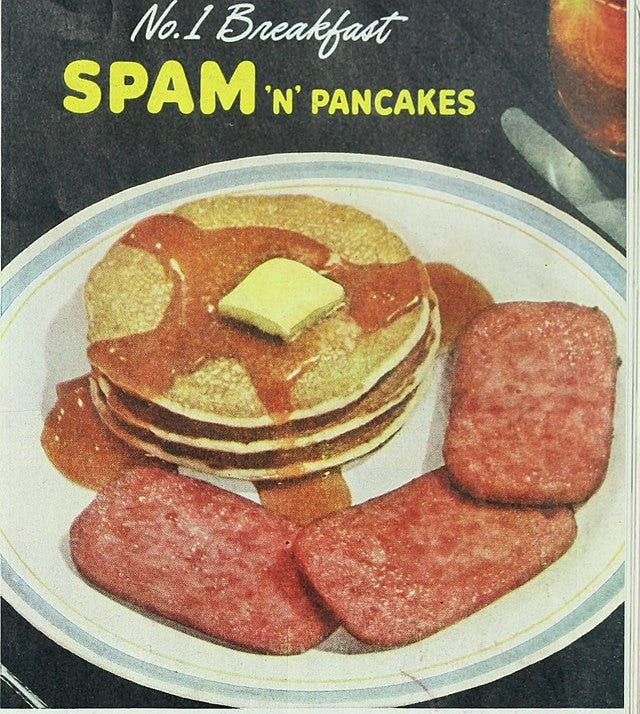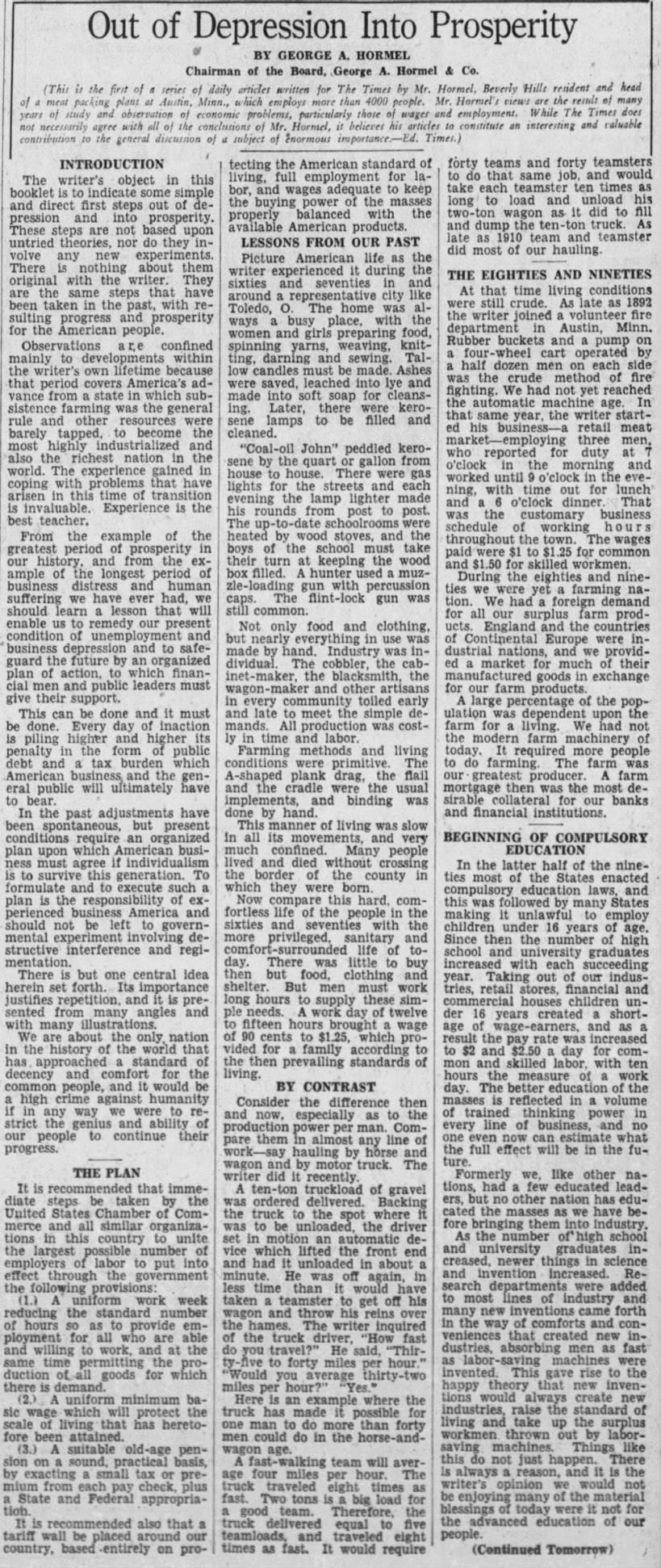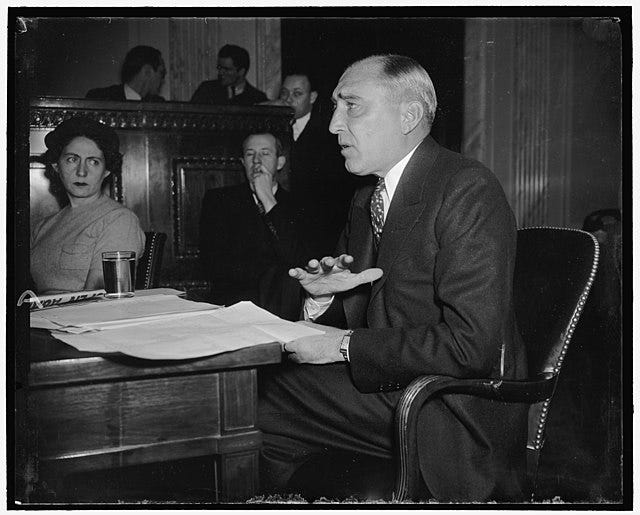“They use everything about the hog except the squeal.” - Upton Sinclair, The Jungle
By all modern measures, the American diet in the late 19th century was disgusting. Meat processing plants were filthy. Cuts and types of meats were often mislabeled. It was even commonplace for sellers to use food coloring in an attempt to make old spoiled bits appear appetizing. It’s no surprise that these conditions led to the rapid adoption of condiments.
While some treated the symptoms, others aimed to tackle the source of the sickness. In 1891, George A. Hormel founded Hormel & Co. in Austin, Minnesota, which focused on processing and selling high-grade pork products to the local community. Word spread of Hormel’s quality, sales steadily grew, and in 1901, the company expanded, creating its first sales branch in Minneapolis. Just a decade later the company was running national advertising campaigns and was being featured in prominent newspapers and magazines.
Despite such success, George stepped away from handling the day-to-day operations in 1928, giving those responsibilities to the company’s new president, his son, Jay C. The passing of the guard was meant to usher in the next era for the company, but that trajectory was diverted by the Great Depression. Businesses failed, unemployment skyrocketed, and sales of Hormel’s premium products dwindled—ultimately exacerbated by labor strikes in the early 1930s.
In September 1935, George A. Hormel wrote a multi-part series in the Los Angeles Times, sharing his views on how the country could find its way out of despair. The archived piece bestows the perspective of a true leader, and additionally, brilliantly captures how life had changed over the decades leading up to when it was written. It is eye-opening, and if you read it in its entirety you will unavoidably build a greater appreciation for the privileges most of us enjoy in the modern day:
“From the example of the greatest period of prosperity in our history, and from the example of the longest period of business distress and human suffering we have ever had, we should learn a lesson that will enable us to remedy our present condition of unemployment and business depression and to safeguard the future by an organized plan of action, to which financial men and public leaders must give their support.”
- George A. Hormel
Embracing responsibility with calculated urgency. Protecting individualism while taking a united front to lift the world out of a hard, comfortless life. Collective efforts have led to what we often take for granted—the truly radical act of continually finding ways to do more with less. Reaffirming the adage the apple doesn’t fall far from the tree, Jay Hormel instilled his father’s vision and vowed to right the ship. Throughout the remaining 1930s, the company introduced guaranteed annual wages and an employee profit-sharing program, as well as new products such as Hormel Chili. Famously, using bulk pork shoulder, which sold poorly, along with other ingredients, the company unleashed the venerable SPAM.
Non-refrigerated meats slowly grew in popularity, but it wasn’t until World War II that SPAM fully spread across the world. The United States military had a serious logistics puzzle to solve, needing to feed troops stationed all around the globe with enough protein and calories in an efficiently-shippable format that wouldn’t spoil. Having perfected the vacuum-seal can, Hormel’s SPAM fit the bill perfectly. By the end of the war, the government had purchased, shipped, and served ~150 million pounds of SPAM.

Not all soldiers grew fond of SPAM, having to eat canned meat for up to three meals per day. But many did—as did the locals near where troops were stationed. To this day, SPAM continues to be celebrated, especially embraced in the cuisines of Hawaii, Guam, the Philippines, South Korea, and Japan. It has even been adopted by fine-dining establishments. Even my own pantry is never without an emergency backup supply. To quantify the proliferation, over nine billion cans of SPAM have been sold around the world, and it’s presently estimated that 12.8 cans are consumed every second.
History serves us powerful reminders of what can be accomplished during trying times—it’s those exact periods that force greater resourcefulness, steer prioritization toward efficiency, and catalyze innovation. How many businesses today proclaim those words yet fail to truly embrace them? How many wrongly believe that hard times are relegated to the past? A growing number that we only gain a glimpse of each time the economy is thrown into the frying pan.
If you enjoyed reading, hit “♡ like” and share this scrap.
Questions or thoughts to add? Comment here or message me on Twitter.
Disclaimer
This publication’s content is for entertainment and educational purposes only. I am not a licensed investment professional. Nothing produced under the Invariant brand should be thought of as investment advice. Do your own research. All content is subject to interpretation.






Thank you for your interest in Hormel Foods. And if you all have never tried SPAM, give it a shot. It's a lot better than you might think, perfectly good as a breakfast food.
SPAM seems to have a image problem with newer generations? How would you remarket it or best to leave it?